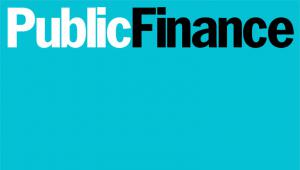The cross-party group was announced today by local government minister Marco Biagi, who will chair it with O’Neill. It will report in the autumn on possible alternative systems of local taxation that would be fairer than the council tax in funding the services delivered by local government.
Its terms of reference ask it to consider the capacity for revenue raising at both local authority and national levels, and the impact on individuals and households of changes. The panel will also consider the wider macroeconomic, demographic and fiscal impacts, including housing market and land use and to devise a potential timetable for transition with local elections planned in Scotland in 2017.
The commission membership also includes Susan Aitken, SNP Local Government Convener and group leader on Glasgow City Council, and Cosla Labour group leader Rhondda Geekie. Also included are the leaders of the Liberal Democrat and independent groups in Cosla, Catriona Bhatia and Angus Campbell.
Alex Rowley, the Labour MSP for Cowdenbeath and shadow local government minister is also a member.
The Scottish Conservatives are not taking part in the group, instead holding their own low tax commission.
Publishing the membership and remit, Biagi said the Scottish Government believes the current council tax system is unfair.
‘The Commission on Local Tax Reform will consider progressive, workable and fair systems, taking into account domestic and international evidence on tax powers and wealth distribution, the autonomy and accountability of local government and the impact on individuals who pay the tax,’ he said.
O’Neill added the commission would think about the best way to pay for the local services that communities rely on every day.
‘Across Scotland people are looking for the debate to break new ground, and that’s why I am determined that this commission will be listening to people and organisations from all parts of the country, and setting out what it would take to give our local communities a real say about what matters most to them, and the best way to pay for it.’
The announcement comes after the Scottish Parliament voted yesterday to write-offnearly £500m of unpaid poll tax debts, in spite of Conservative claims that the precedent it establishes amounts to a ‘tax-dodgers’ charter’.
MSPs passed the Community Charge Debt (Scotland) Bill by 98 votes to 15, with Labour, the Greens and the Liberal Democrats all supporting the Scottish National Party government’s measure. Only the Conservatives opposed the plan.
‘It could encourage people who think they don’t have to pay the council tax because it will just be written off a few years down the line,’ Tory finance spokesman Gavin Brown said.
‘People should pay the taxes for which they are liable. There should be a principle of equality between those who paid the tax and those who didn’t pay.’
But Biagi the legislation would ‘draw a line under the last remnants of that [poll] tax and, most importantly, put one of its last bitter legacies behind us once and for all, and ensure that all can come forward to register to vote without fear’.
A key element in the Scottish Government’s argument arose from reports that some Scottish councils planned to use the massively swollen electoral register for last year’s independence referendum to pursue poll tax defaulters with new vigour.
Additional reporting by Keith Aitken in Edinburgh




















